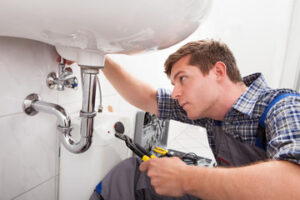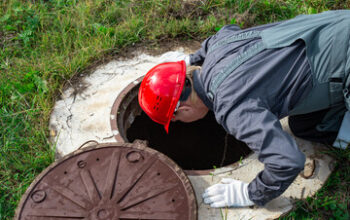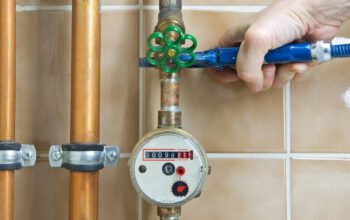A plumber is a professional that specializes in maintaining and installing drainage and potable water systems. They will also maintain and install sewage systems. A plumber will have the skills to deal with clogs and other problems in these systems. Plumber can also help you avoid problems by recommending preventive maintenance.
 A plumber’s job requires critical thinking skills and verbal communication skills. They must be able to explain what they are doing to customers. They also need to be physically fit because they may need to handle heavy tools and equipment. The job outlook for plumbers is good. According to the Bureau of Labor Statistics, employment will be a 15% increase between 2016 and 2026. This rate of growth is faster than the average for all occupations. However, keep in mind that the economy can affect the job market.
A plumber’s job requires critical thinking skills and verbal communication skills. They must be able to explain what they are doing to customers. They also need to be physically fit because they may need to handle heavy tools and equipment. The job outlook for plumbers is good. According to the Bureau of Labor Statistics, employment will be a 15% increase between 2016 and 2026. This rate of growth is faster than the average for all occupations. However, keep in mind that the economy can affect the job market.
A plumber’s salary will vary depending on experience, location, and employer. An apprentice must complete a minimum of one year of practical training before becoming a fully-fledged plumber. A plumber should also stay up to date on the latest technology in plumbing, as it is always changing. If you are interested in working with air conditioning or sanitation systems, you may want to pursue a specialist qualification. Alternatively, you could become a manager or estimator.
The average salary for a plumber is around Rs17,165 a month. That translates to about Rs2,42,433 a year. An apprentice plumber may earn as little as Rs15,402 per month and a master plumber can earn up to Rs20,150 a month. Many plumbers choose to work for large corporations or government organizations.
A plumber must be licensed and insured. You should be sure to check his license, insurance, and references before hiring him or her. You should also ask the plumber to provide you with a written estimate. Getting a written estimate is crucial for ensuring that the price quoted is reasonable. If you hire a plumber, make sure to check the Better Business Bureau for any complaints.
Plumbing is a very skilled profession and requires several years of study. In addition to being licensed, a plumber must undergo training and complete an exam before they are allowed to work. A plumber must also have a good command of plumbing tools and materials. You should also have good communication skills, as you will need to understand what customers need. A plumber should also be familiar with the rules and regulations of the area where you live. If you are skilled enough, you can even go out on your own and open up a plumbing business.
A plumber should be able to diagnose problems quickly. Sometimes plumbing problems occur when you least expect them to, such as burst pipes or clogged drains. It may even be a matter of installing a new water heater. A top-rated plumber will be able to solve your problem and give you a free quote. This is a great way to make sure you are getting the best value. There is no reason to go with an unreliable plumber unless you can trust their work.
The term plumber is derived from the Latin word plumbum. In the past, all pipes were made of lead, and plumbers were literally referred to as “lead workers”. Today, however, lead piping is banned in most parts of the world. A plumber may have to dig into pipes to diagnose a problem.
While you can perform some plumbing tasks on your own, it is best to leave larger tasks and specialty repairs to a professional plumber. Depending on the type of problem, a plumber can charge between $40 and $400 per hour. This does not include materials and trip fees. Some plumbing jobs require permits, which can increase the price of the service.


